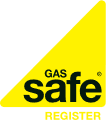Landlord Gas Responsibilities
The following is intended for landlords of properties.
We are keen to highlight that, as set out below, landlords are responsible for their properties and have a duty of care to their tenants. This means registered gas engineers are not responsible for landlord’s gas safety checks being in place or up to date.
Who is a landlord?
A landlord is anyone who rents out a property, such as residential dwelling, room to let or rental holiday accommodation that is subject to lease or license agreement. You may be classified as a short-term landlord, long term landlord or a lettings and management agent depending on the length and type of rental you are providing.
More clarification in your status as a landlord can be found on the HSE website.
What are your landlord gas safety responsibilities?
The Gas Safety (Installation and Use) Regulations 1998 (GSIUR) outline your duties as a landlord to make sure all gas appliances, fittings, chimneys and flues are safe and working efficiently. If you’re letting a property with gas appliances installed, you’ve got three main legal responsibilities:
1. Gas safety checks
To ensure your tenants’ safety, all gas appliances and flues need to undergo an annual gas safety check – which should always be carried out by a suitably qualified Gas Safe registered engineer. Once this has been done, you'll be given a Landlord Gas Safety Record (LGSR) with details of all the checks that were carried out.
You can arrange for a gas safety check to be carried out any time from 10-12 months after the last completed check, without affecting the original expected expiry date. If it’s less than 10 months or more than 12 months after the last check, you’ll end up with a new deadline date 12 months from the most recent check . If you are unsure about your LGSR please contact Gas Safe Register to discuss your individual case.
Appliances owned by your tenants aren’t your direct responsibility - although it’s still up to you to ensure the safety of any connecting flues, unless they’re solely connected to the tenants’ appliance.
2. Gas Safety Record
Following the annual gas safety check and receipt of your Landlord Gas Safety Record, you’ll need to provide a record of this check to your tenants. By law, a copy of your Landlord Gas Safety Record should be given to your current tenants within 28 days of the gas safety check - and for new tenants, you’ll need to provide this at the start of their tenancy.
For rental periods of less than 28 days, just make sure you’ve clearly displayed a copy of your gas safety record within the property. You’ll need to keep copies of this gas safety check record until a further two checks have been carried out.
3. Maintenance
You’ll need to make sure that all gas pipework, appliances, chimneys and flues are kept in safe condition. Check the gas appliances’ manufacturer guidelines to find out how often a service is recommended. If you haven’t got access to these, we’d recommend an annual service - unless your Gas Safe registered engineer suggests otherwise.
Gas pipework check recommendation
Installation pipework isn’t covered by the annual gas safety check, but both Gas Safe Register and the HSE recommend that when you request a safety check, you ask your Gas Safe registered engineer to:
- Test for tightness on the whole gas system, including installation pipework
- Visually examine the pipework (so far as is reasonably practicable)
There are no formal requirements for you to keep maintenance records, but you’ll need to be able to show that you have regularly maintained the pipework, appliances and flues and completed required repairs.
How much does a Landlord Gas Safety check cost?
The cost of your Landlord Gas Safety check will depend on the Gas Safe registered business who carries out your annual gas safety check. We recommend getting at least three quotes from companies before arranging for the check to be carried out. You can find a registered business in your local area on our Check The Register page.
Coronavirus (COVID-19): Advice for landlords
The HSE have provided specific guidance for landlords, to help them with understanding their responsibilities during the pandemic. https://www.gassaferegister.co.uk/help-and-advice/covid-19-advice-and-guidance/landlords/.
What to do in a gas emergency?
It’s always a good idea to ensure your tenants know where and how to turn the gas off and what to do in the event of a gas emergency.
Landlords and carbon monoxide (CO) detector/ alarms
From 1st of October 2022, a CO alarm is required to be fitted in every habitable room of a rental property containing gas appliances (excluding appliances used for cooking purposes). The landlord is required to carry out a checks and tests to ensure that carbon monoxide alarms in the rental property are working the day any new tenancy begins.
Before purchasing a CO alarm, always ensure it complies with British Standard EN 50291 and carries a British or European approval mark, such as a Kitemark. Check the manufacturer’s recommendations about how you should fit and test your alarm to ensure that the unit and the batteries are in good condition.
Any issues?
We understand that some relationships between landlords and tenants can become problematic. The tenancy agreement should allow access for maintenance or safety checks, but if your tenant refuses to grant access you must show you've taken all 'reasonable steps' to comply with the law. This includes repeating attempts to carry out the checks and writing to the tenant to explaining that safety checks are a legal requirement in place for their own safety. Keep a record of any action you take; you may need this at a later date.
The Gas Safety (Installation and Use) Regulations don’t give powers to ‘force disconnection’ of the gas supply in these circumstances and you may need to seek legal advice.
Useful links
- Gas safety information for tenants
- Landlords Gas Safety Certificate
- Carbon Monoxide (CO) poisoning information
- Leaflets and online learning
Featured Content
Gas Safety Certificates & Records
What’s the difference between a Building Regulations Compliance Certificate and a Gas Safety Record, and when do you need them? More info here.
Home Improvements
Doing DIY? Find our advice on guidance on how to stay safe when making home improvements.
Find An Engineer
Looking to find a Gas Safe registered engineer? Find one in your local area or check their details.



